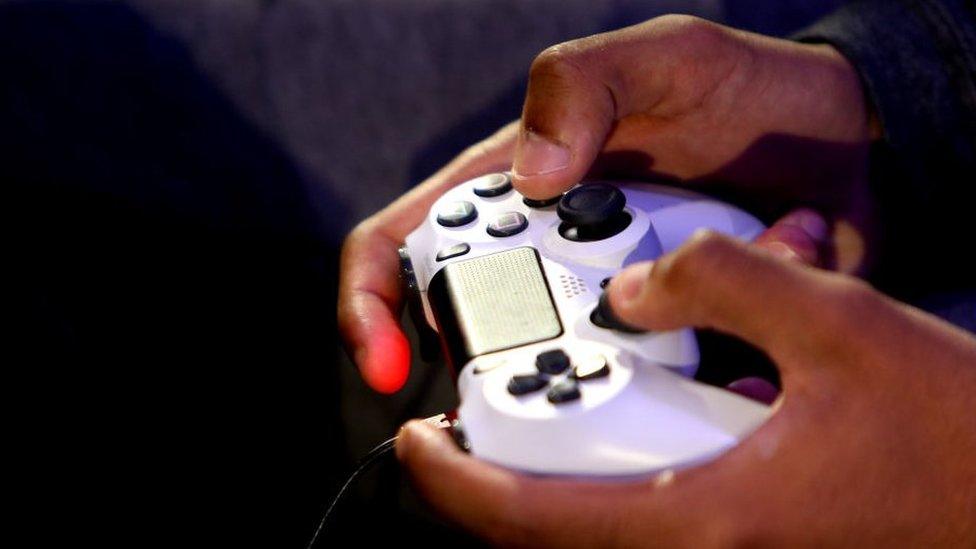'Swatting' hostage hoaxer led police to shoot man
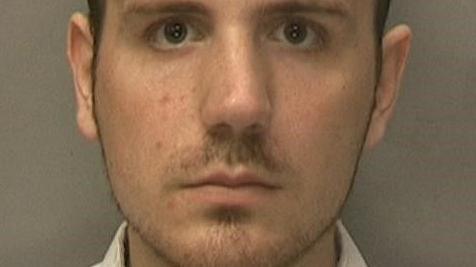
Robert Walker-McDaid contacted terrorism police in Maryland to report a fake hostage situation
- Published
Warning: This story includes graphic images of the victim's facial injuries.
A UK hoaxer whose fake call to police in the US led to the shooting of an innocent man by officers believing they were dealing with a hostage situation, has been spared jail.
Robert Walker-McDaid, from Coventry, rang a terrorism hotline in Maryland, prompting a Swat (special weapons and tactics) police unit to be sent to his victim's home where he was shot with plastic bullets.
Walker-McDaid had posed as Tyran Dobbs and said he had explosives and was holding hostages. Mr Dobbs suffered serious life-changing facial injuries when he was subsequently shot twice, in 2015, Warwick Crown Court heard.
The defendant is the first in the UK to be charged over the phenomenon known as "swatting", according to the Crown Prosecution Service (CPS), which worked on the case with the US Department of Justice and the FBI.
The 28-year-old, of Avon Street, earlier admitted perverting the course of justice and was sentenced to 20 months' imprisonment, which was suspended by a judge for 18 months.
The phenomenon gets its name because such hoax calls in the US prompt Swat police units to be called in.
Detectives had established Walker-McDaid was asked to make the phone call by Zachary Lee, of Catonsville, Maryland, whom he had met while playing video games.
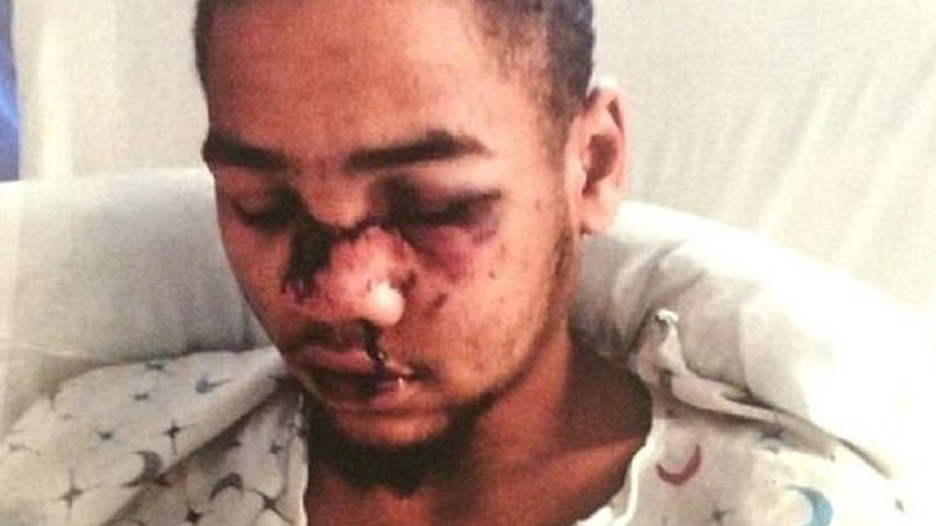
The Swat team spent more than two hours at Tyran Dobbs' address
Lee messaged Walker-McDaid on 17 February 2015 to say he had "someone I need swatted" and shared Dobbs' address.
The next day the defendant called the terrorism hotline, stating he would start executing them "within 15 minutes" unless he received $15,000 (£12,000), the CPS said.
The Swat team responded and spent two hours at Mr Dobbs' address, where he was shot in the face and chest with plastic bullets, subsequently requiring him to undergo reconstructive facial surgery, prosecutors told the court.
'Willing and active participant'
US detectives, the FBI and Interpol later discovered the hoax call was made by Skype user, "Meowobikiniz", whose IP address was registered to Walker-McDaid's home address in Coventry.
He avoided extradition to face charges in the US and was prosecuted in the UK.
Despite admitting making the phone call to police, Walker-McDaid denied full culpability and suggested he had been pressured into it, prosecutors said.
But after investigations into the Skype messages between him and Lee, who was jailed for two years in 2018 for his role in the crime, prosecutors were able to prove that Walker-McDaid was a willing and active participant, the CPS added.
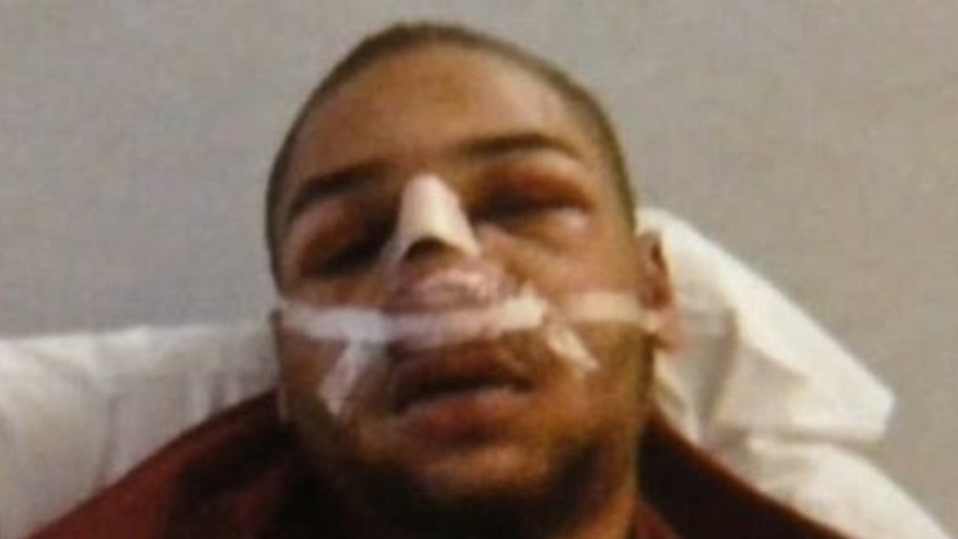
Mr Dobbs needed facial surgery after the incident
The offence of "swatting" is not recognised as a stand-alone offence in UK law, unlike in the US, but prosecutors said the charge of perverting the course of justice could be used where false complaints or allegations were made.
Hannah Sidaway, specialist prosecutor for CPS West Midlands, said: “Walker-McDaid may not have intended to cause such serious harm, but by sowing panic and deceiving law enforcement into responding to a fictitious threat, he left an innocent man with life-changing injuries."
Erek L. Barron, US states attorney for the District of Maryland, said: “We will continue to use every tool at our disposal and work closely with our international partners to ensure that those who seek to harm Americans will face justice, wherever they may be.”
Follow BBC West Midlands on Facebook, external, X, external and Instagram, external. Send your story ideas to: newsonline.westmidlands@bbc.co.uk, external
- Published14 November 2018
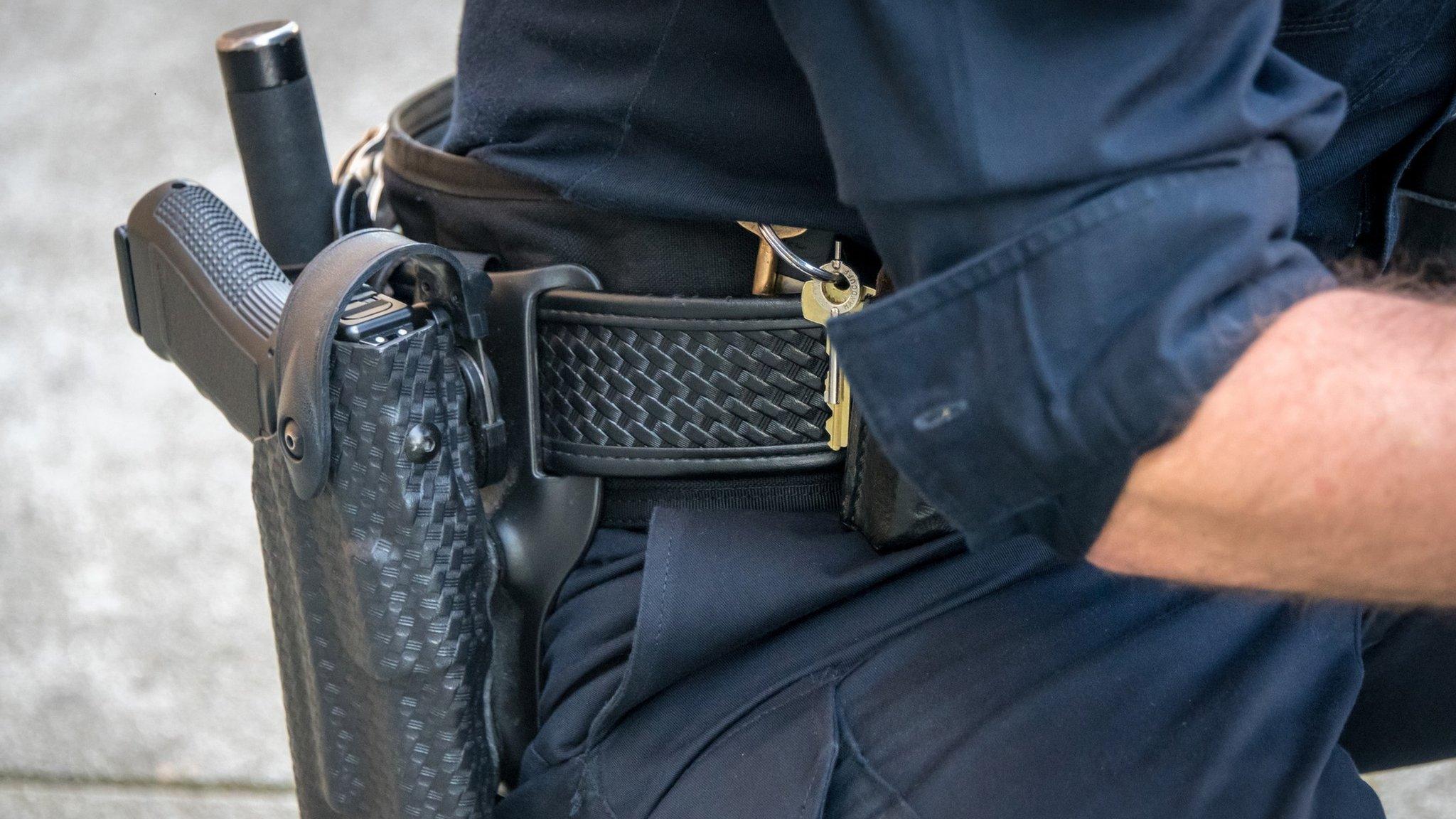
- Published16 September 2019
